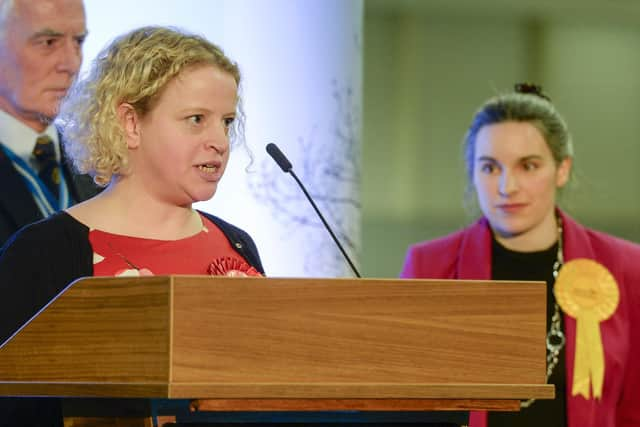Sheffield MP leaves junior party role to vote against controversial Bill
Some 18 Labour MPs on the party’s left went against instructions to abstain on the Overseas Operations (Service Personnel and Veterans) Bill, which Tory ministers insist is aimed at protecting armed forces personnel from “vexatious prosecutions”, party sources said, but three held junior roles supporting Sir Keir Starmer's front bench.
A Labour source told the PA news agency: “Anyone who wanted to vote against (the) whip was told they would have to resign.”
Advertisement
Hide AdAdvertisement
Hide AdSheffield Hallam MP Olivia Blake was in the post of Parliamentary Private Secretary (PPS), along with Beth Winter and Nadia Whittome.


Ms Blake was a PPS across the Shadow Scotland and Digital Culture Media and Sport team.
Asked if she was expecting to be asked to resign, Ms Whittome told ITV’s Peston on Wednesday: “I thought that the Bill was a matter of conscience.
“I understand why colleagues came to a different conclusion and thought that we can amend this at committee stage.
Advertisement
Hide AdAdvertisement
Hide Ad“But, I felt that given that all the major human rights organisations, Amnesty, Human Rights Watch, and given that even the British Legion and veterans themselves opposed this Bill – and these are all arguments that our front bench made today, we don’t agree with this Bill.
“And we think it’s anti-veteran, it’s anti-human rights. It would, effectively, decriminalise torture, and that’s why I voted against it.
“We already have laws that prevent vexatious claims, and, in fact, many veterans are against this.”
Labour’s Diana Abbott said the three “voted absolutely in line with Labour values”.
Advertisement
Hide AdAdvertisement
Hide AdThe Government says the proposed legislation will ensure service personnel will be protected from “vexatious claims and endless investigations”.
Ministers said it seeks to limit false and historical allegations arising from overseas operations by introducing a statutory presumption against prosecution, making it exceptional for personnel to be prosecuted five years or more after an incident.
To override the presumption, the consent of the Attorney General will be required, and the prosecutor must weigh up the “adverse impact of overseas operations on service personnel” and, where there has been no compelling new evidence, the public interest in cases coming to a “timely conclusion”.
But campaigners and some senior military figures have warned the legislation will create a presumption against prosecution of torture and other serious crimes, except rape and sexual violence.
Comment Guidelines
National World encourages reader discussion on our stories. User feedback, insights and back-and-forth exchanges add a rich layer of context to reporting. Please review our Community Guidelines before commenting.